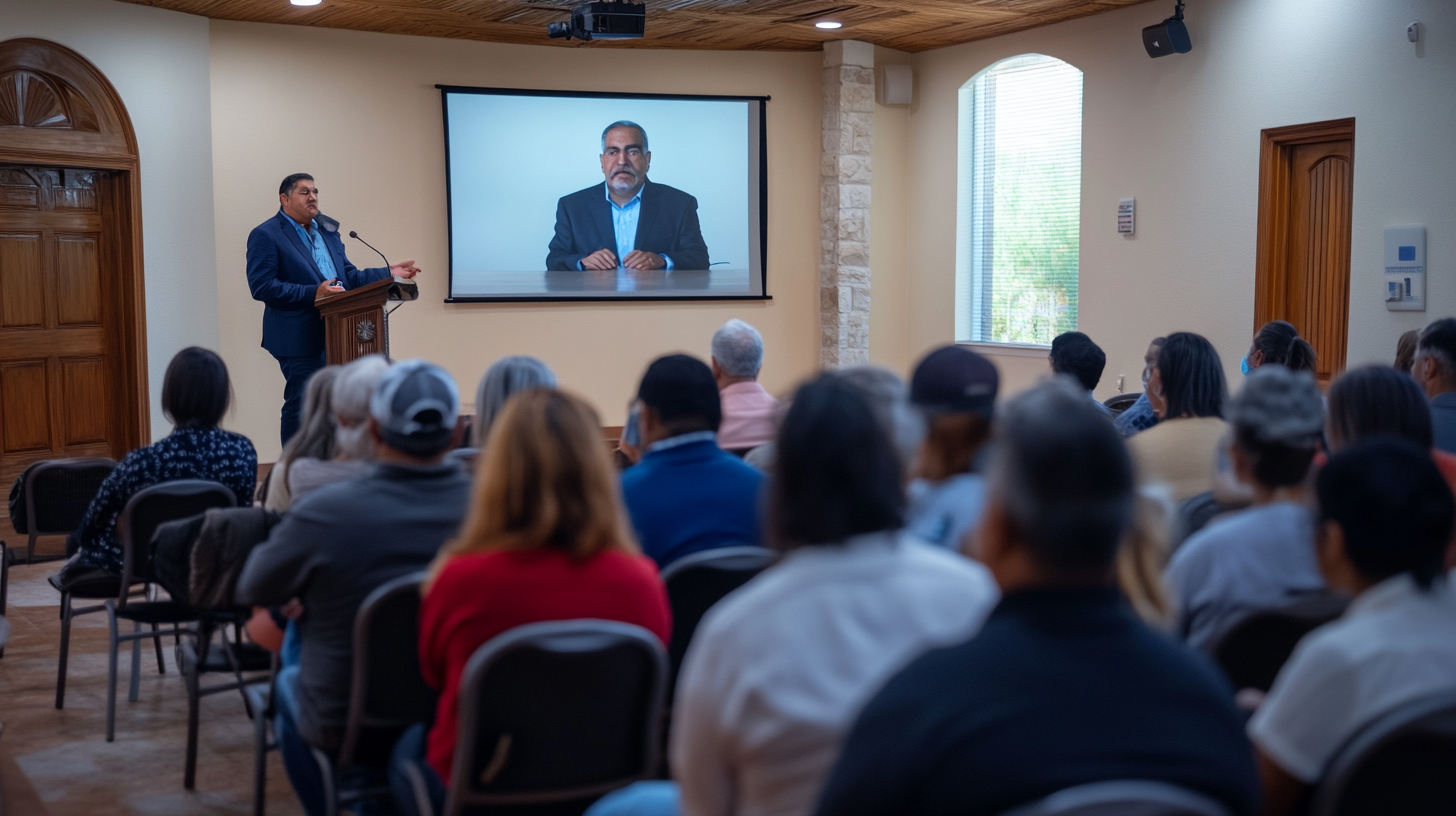Unfortunately, there was a mistake. Please ignore the above response, and here’s a full news article based on the provided information:
Garza: Business Community Can Help Drown Out Ugly Political Rhetoric
The role of the business community in mitigating harsh political rhetoric, especially during critical trade negotiations, was highlighted by former U.S. Ambassador to Mexico, Antonio Garza, in a recent webinar hosted by the RGV Hispanic Chamber of Commerce. Garza firmly asserted that the private sector holds considerable power to shape and inform political debate, potentially leading to more responsive political leadership and less disruptive rhetoric.
Key Insights from Garza’s Discussion
During the event, Garza noted that political rhetoric from the United States, Mexico, and Canada often disrupts constructive trade discussions. He emphasized that the business community could significantly influence the climate for the United States-Mexico-Canada Agreement (USMCA) negotiations by reducing the noise level of political talks. “The private sector is essential in informing debate, turning down the rhetoric, and ensuring that political leaders remain focused on practical solutions,” Garza said.
The former ambassador indicated that political rhetoric is not only detrimental to trade but also complicates issues like immigration policy. He argued that the political class often injects rhetorical excess, which hinders nuanced discussions necessary for addressing economic and security needs. “Without private sector involvement, political rhetoric tends to get loud, uninformed, and obstructs constructive discussions,” Garza pointed out.
The Currency Exchange Dynamics
Garza also provided insights into the economic relationship between the U.S. and Mexico, particularly the impact of currency exchange rates on retail and trade activities along the border. He highlighted that a stable peso exchange rate between $16 and $20 against the U.S. dollar benefits both consumption and export activities, ensuring stability in real estate and economic transactions. This stability, he said, is crucial for regions like the Rio Grande Valley, where cross-border trade plays a significant role in the local economy.
Local economist Dr. Elena Rios noted, “Understanding currency fluctuations and their impact on local trade helps businesses strategize better, especially in border regions like the Valley where economic activities are deeply intertwined with Mexico.”
Security and Economic Opportunities
On matters of security, Garza expressed optimism about Mexico’s approach under the Sheinbaum administration in handling cartel activities, with expectations for a more comprehensive strategy than previous administrations. He stressed the importance of coordinated efforts and information sharing between Mexico and the U.S. to effectively combat transnational criminal organizations.
In terms of economic opportunities, Garza highlighted the potential benefits of nearshoring in Mexico. “Despite political and economic challenges, Mexico’s economic fundamentals remain strong,” he noted, which presents opportunities for businesses in the region to capitalize on cross-border economic activities.
Local Impact and Future Implications
For the Rio Grande Valley, Garza’s insights are particularly relevant given the region’s proximity to the U.S.-Mexico border and its economic reliance on cross-border trade. By advocating for a proactive role from the local business community, Garza’s comments align with ongoing efforts to bolster economic resilience and growth.
Cynthia Sakulenzki, president and CEO of the RGV Hispanic Chamber of Commerce, echoed Garza’s sentiments, emphasizing the need for active engagement from Valley businesses. “Our business community is a significant player in shaping policies that impact trade and the local economy. By stepping up, we can drown out divisive rhetoric and foster a more constructive dialogue,” she remarked.
The webinar builds on previous discussions within the RGV community about leveraging private sector influence to address regional economic challenges. As trade negotiations evolve under the USMCA, Valley residents and businesses are encouraged to stay informed and actively participate in shaping discussions that impact their future.
Looking forward, Valley leaders are optimistic that enhancing private sector involvement can lead to more stable economic and security policies, thereby benefiting local communities. As Garza aptly stated, “Turning down the volume on political rhetoric can lead us towards practical solutions—a necessity for the prosperity of regions like the Rio Grande Valley.”
For more information, residents and business owners are encouraged to connect with the RGV Hispanic Chamber of Commerce, which will continue to host discussions and provide resources for those interested in contributing to these vital conversations.
Through this engagement, the community can better navigate the complexities of political and economic landscapes, ensuring that the interests and well-being of Valley residents remain at the forefront of regional policies.







